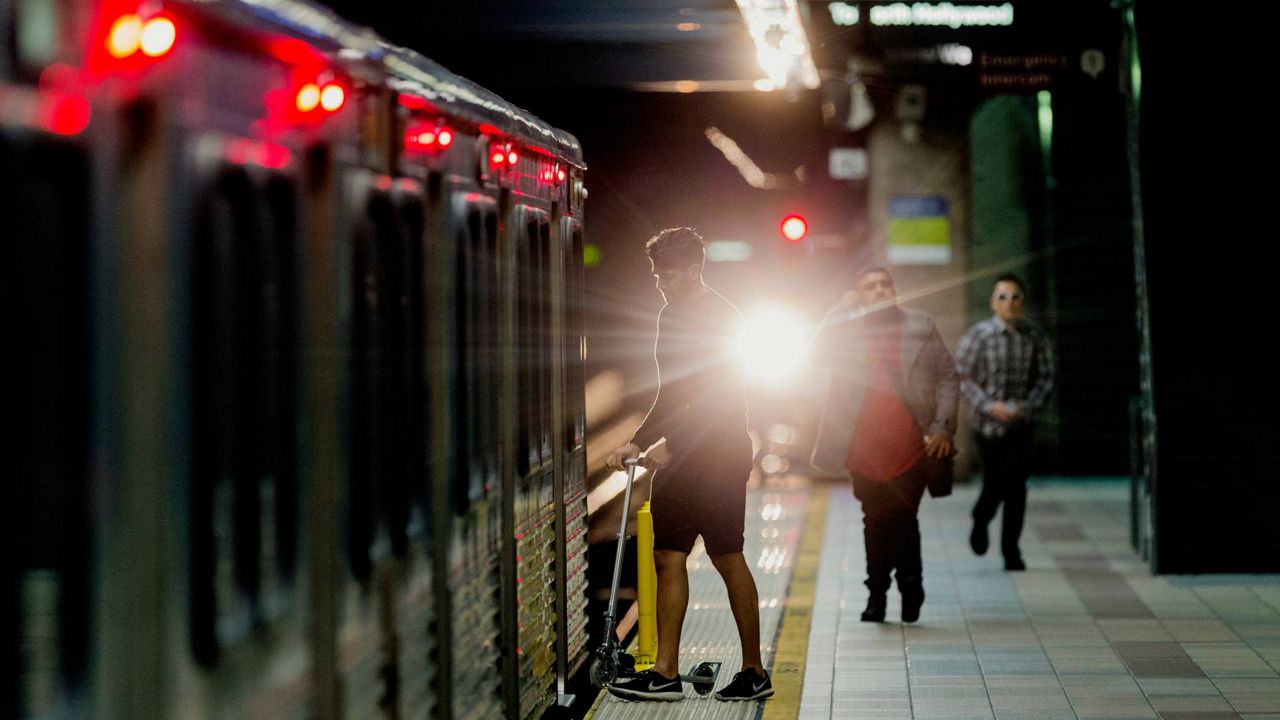LOS ANGELES (CNS) — Metro's Finance, Budget and Audit Committee Wednesday recommended approval of a proposed $9 billion budget for fiscal year 2024, which represents a $232.4 million, or 2.6%, increase over the previous year with investments in service frequency and reliability, cleaning and public safety.
What You Need To Know
- As part of the budget process, the committee held a public hearing to allow Metro's customers to comment and provide feedback on the proposed budget
- "All these investments focus on one thing: putting people first," Stephanie Wiggins, Metro CEO, wrote in her budget letter
- Metro proposed to invest $201 million in cleaning efforts, an increase of $23.6 million, or 13.3%, compared to last year
- Los Angeles City Councilman and board member Paul Krekorian supported the proposed budget, but cautioned Metro must remain fiscally responsible ahead of uncertainty in the near future
As part of the budget process, the committee held a public hearing to allow Metro's customers to comment and provide feedback on the proposed budget. Public speakers expressed support for the same priorities that Metro listed in its budget, but said they wanted more funding for Metro services and programs and less to law enforcement.
"All these investments focus on one thing: putting people first," Stephanie Wiggins, Metro CEO, wrote in her budget letter. "Metro's budget must reflect that we are here to serve our customers."
Wiggins noted the proposed $9 billion budget is "balanced" and focused on a service plan to include system expansion, integration, customer experience enhancement, safety and cleanliness, employee safety, and retention and public engagement. Wiggins cautioned the agency to remain vigilant of two distinct concerns — an overall operating deficit and challenges of major infrastructure capital projects.
"With federal stimulus funding exhausted, Metro, like other transit agencies across the nation, faces financial challenges and pressures, making it imperative that every dollar is budgeted and spent wisely," according to the budget proposal.
The proposed budget outlined an investment of $2.36 billion in the Metro Transit Operating and Maintenance program, an increase of about $112.7 million, or 5%, over its FY23 budget. Metro intends for that allocation to provide 8.9 million revenue hours of service, a 9.6% higher level of service prior to the coronavirus pandemic.
Metro also proposed to invest $201 million in cleaning efforts, an increase of $23.6 million, or 13.3%, compared to last year. The money is intended to fund 10 roving cleaning teams, hire 24 more full-time custodial staff and hire up to 50 temporary part-time custodial staff dedicated to the B (Red) and D (Purple) lines.
In addition, Metro will also increase the frequency of cleaning to include "in-line" and mid-day bus interior cleaning, "end of line" cleaning on rail, station hot spots, and expanded activities at Metro's most traveled stations and terminals.
Safety is another priority listed in the budget, which includes $290.5 million in public safety and would support the agency's Reimagining Public Safety Framework, a multi-layered strategy for enhancing public safety on its transit system.
"In addition to our continued contract investment in law enforcement services and the pilot Metro Ambassadors, our Transit Security Officer ranks will also increase to address compliance with the code of conduct," Wiggins wrote in her budget letter. "We're also investing in enhanced security cameras, fare gates, lighting, and other safety infrastructure, to make our customers' experiences on Metro as safe as they can be."
The budget would also invest $13.5 million in outreach to unhoused people in partnership with People Assisting the Homeless and the Los Angeles County's Department of Health Services. It would also dedicate $10 million to a new partnership with the county's Department of Mental Health Services to provide training and strategies for addressing mental health concerns, and also fund Community Mental Health Ambassadors.
Another $1.8 million would be used for short-term shelters, workforce partnerships and other strategies to address societal crises of mental health, drug addiction and homelessness.
The proposed budget invests in free and reduced fares through the implementation of the GoPass Pilot program for K-12 and community college students and the Low-Income Fare is Easy program.
Lastly, the agency will look to fund full-scale construction on the G (Orange) Line Improvements Project, and continue progress on the Airport Metro Connector and the Purple Line Extension projects. Metro will also look to make infrastructure improvements to increase bus speeds and reliability by installing peak-hour bus lanes.
County Supervisor Holly Mitchell, a member of Metro's Board of Directors, said the agency has "real" safety challenges on its transit systems, which she expects Metro will address in the Operations Committee.
She also noted the budget makes clear investments to Metro employees because without them "our system cannot run."
Supervisor and board member Kathryn Barger agreed, adding that Metro needs to "look into" making transit more affordable, or even free.
She emphasized that Metro's budget is a "living document." Throughout the fiscal year, Metro has the ability to allocate or move funding to address issues or priorities that may come up.
Los Angeles City Councilman and board member Paul Krekorian supported the proposed budget, but cautioned Metro must remain fiscally responsible ahead of uncertainty in the near future. Metro is projected to face a $1 billion deficit in the FY 25.
"We can't only look at one year when we have to be thinking about the future as well and figuring out how to make sure that we're being prudent enough to be able to accommodate those very real, very significant risks far not too down the road," Krekorian said.
The full Board of Directors will consider the proposed budget at its regular meeting on May 25.



